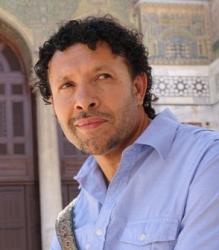Content from the Brookings Doha Center is now archived. In September 2021, after 14 years of impactful partnership, Brookings and the Brookings Doha Center announced that they were ending their affiliation. The Brookings Doha Center is now the Middle East Council on Global Affairs, a separate public policy institution based in Qatar.
This post is the seventh in the Pandemic Politics series.
Tunisia may be deservedly basking in its coronavirus “success” as the country prepares to open its borders and allow tourism. However, celebrations of the virus’ containment mask persistent socio-economic inequalities and regional marginalization. Prior to the pandemic, Tunisia had amassed a level of public debt equivalent to 77.1 percent of gross domestic product. That number is expected to rise as the country seeks more COVID-19-related loans. As Fairouz Ben Salah charts, this includes $745 million from the International Monetary Fund and $273 million from the European Union, as well as promises of $55 million from Italy and $280 million from the Islamic Development Bank.
While this aid will finance economic support measures, it is unlikely to mitigate deep disparities in wealth and access to public resources, including healthcare. This is particularly true for the historically marginalized southern and interior regions. Oxfam reports that Tunisia’s tax system — heavily structured around the neoliberal economics of international lenders — has only deepened regional inequality over time. Though it may be true that the pandemic has delivered a blow to the economy nationwide, Manel Dridi contends that it will be those marginalized regions that feel the impact most powerfully, and take the longest to recover. As Ben Salah notes, the informal sector will suffer acutely, as meager government cash transfers fall short.
Looking ahead to a post-COVID-19 economy presents an opportunity to rethink development strategies. Asma Bouraoui Khouja suggests that reinforcing a social and solidarity economy will be vital. Indeed, on June 17, the legislature passed a draft social and solidarity economy law, which seeks to harmonize public, private, and social economy institutions, as well as encourage association through cooperatives. It is unclear whether this bill will be enough to improve the lives of Tunisia’s poor. Sofian Philip Naceur highlights that public discontent is on the rise, as is the often hazardous pursuit of migration to Europe. Recently, demonstrations re-emerged in Tataouine, where civilians demanded investment in the energy sector.
Such lingering marginalization presents a clear message for many Tunisians: surviving the coronavirus will not save them from economic woes and socio-political exclusion.
Below is a short selection of commentary for more on this debate.
“Employment and investment levels in Tunisia are afflicted by regional disparities, especially between the well-developed coast and the poorer, marginalized interior. The economic strain caused by the coronavirus will disproportionately affect these marginalized regions that have faced significant economic challenges over the years despite the government’s development efforts.” — Manel Dridi, Assistant Professor in the Institute of Higher Management at the University of Tunis. Coronavirus and Tunisia’s Regional Economic Inequalities, April 29, 2020.
“Similarly, in terms of health services, Tunis has 10.2 intensive care beds per 10,000 inhabitants compared to 0 beds in Tataouine, Gafsa, Sidi Bouzid and ten other regions of the country. The status of ‘victim region’, which is recognized now under the transitional justice law, exemplifies the extent of this fracture and the feeling of injustice that runs through these interior regions which are truly left behind by the country’s economic and social development.” — Oxfam. Fiscal justice in Tunisia: a vaccine against austerity, June 17, 2020.
“The COVID-19 crisis has exacerbated inequalities in Tunisia – not only in income but also in opportunity: access to finance, to digital technology, means of communication, and more. The response should also look to reinforce social security, as well as the resilience of populations to shocks which may come in the future.” — Asma Bouraoui Khouja, Team Leader for Inclusive Growth and Human Development at the United Nations Development Programme Tunisia. We must think differently in COVID-19 recovery – an outlook from UNDP Tunisia, May 14, 2020.
“Social inequalities have intensified hugely since the outbreak of the pandemic. The government has taken some counter-measures, pumping money into the economy and offering special help to those on low incomes and in informal employment. But these measures have not gone nearly far enough.” — Sofian Philip Naceur, Freelance Journalist and Researcher. Tunisia post-lockdown – should we stay or should we go?, June 19, 2020.
“Political scientist and essayist Amine Snoussi … says the lockdown particularly hits the people working in the country’s informal economy who have not been included in the government’s package of economic support measures. According to the International Labor Organization, around 53% of the total labor force of Tunisia works in the informal sector.” — Fairouz Ben Salah, Freelance Journalist and Researcher. Coronavirus lockdown uncovers vulnerability of Tunisia’s economy, April 23, 2020.




Commentary
Op-edPandemic Politics: Tunisia’s ‘success’ in fighting COVID-19: Blighted by lingering marginalization?
July 15, 2020